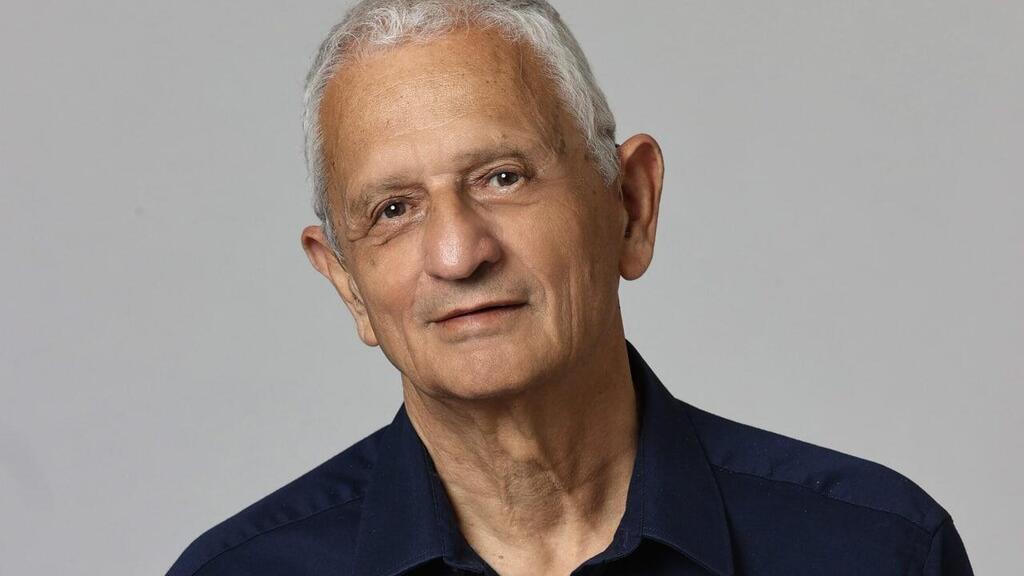Getting your Trinity Audio player ready...
Israel is facing an unprecedented civil crisis revolving around the future of its judicial system.
On one side, there is the right-wing and religious coalition of Prime Minister Benjamin Netanyahu that has claimed the need for a judicial overhaul. According to the government's proposal, the political leadership would determine the makeup of courts, while the parliament would be able to legislate laws without judicial oversight
8 View gallery


Mass demonstration outside the Knesset on Monday as coalition laws pass in committee
(Photo: AP)
On the other, there are the opposition parties, which have followed their voters into the streets, claiming the planned legislation will end democracy, change the balance of power between the three government branches, and even lead to civil war.
The timing of the new legislative initiatives exacerbates public concern because of Netanyahu's ongoing corruption trial.
The prime minister, who heads the Likud party - historically a liberal movement, is facing criminal charges for bribery, fraud and breach of trust. Until his indictment, he was a forceful defender of the courts. The proposed laws were periodically brought up by Likud's lawmaker and current Justice Minister Yariv Levin over the years but were always categorically rebuffed.
But coalition members, chief among them Religious Zionist lawmaker Simcha Rothman who heads the Knesset Constitution, Law, and Justice Committee, are pushing the reforms at warp speed. Rothman claims the policies being advanced by the current leadership were on the ballot in the November 2022 elections, and still, a majority of Israelis voted for the right.
The conflict has now spread beyond the question of the courts to touch all aspects of a fractured society and could endanger economic stability and security.
In a special project, Ynet has tasked some of its best-known political commentators to express their views on the reforms and has provided Rothman with a platform to explain the reasons for his legislative campaign.
Knesset Constitution, Law, Justice Committee Chairman MK Simcha Rothman:
"The reform aims to correct the harms caused by the judicial revolution and return the power that was usurped by a minority elite back to the people from which it was taken. We strive to achieve a balance that retains the power to govern in the hands of the governed, not the self-appointed philosopher judge-kings.
"Israel after the reform will return to its status before the judicial usurpation and become more democratic, and more attuned to the public’s values and different voices. The only people who find this idea appalling are those who want to continue their control over the country through the Supreme Court, despite continuously losing elections."
Click here to read the full column
Columnist and political analyst Naveh Dromi:
"Unlike coups, the signs of reform have been identifiable for years. For decades, sources on the Right have opposed the extreme changes in Israel’s judicial system and have called to restrain the Supreme Court because it’s not a branch of government that balances out the others, but rather a branch trying to abolish the other, weaker, more moderate branches which aiming to implement the will of the people as decided at the ballot.
"Those calling the reform a coup, don’t respect Israeli democracy and don’t care about it. The struggles between left and right before the foundation of the state were too many to list. But in recent times, since Levin presented his reform, protest leaders (including the current chief justice of the Supreme Court) are behaving as if they’ve gone to war."
Click here to read the full column
Author and columnist Ben-Dror Yemini:
"Most political players, as well as public opinion, support judicial reform, but not as it was presented by Levin. The concerns are the infringement on democracy and a slippery slope leading to the kind of steps taken over the last decade in Poland and Hungary. Another concern is that the only purpose behind the proposed reforms is to rescue Netanyahu from his criminal trial which is in full swing.
That concern is what has prompted the mass demonstrations and the public outcry, as well as the early signs of damage to Israel's economy as the result of fears for Israel's democratic status."
Click here to read the full column
Lawyer and social activist Prof. Yuval Albashan:
"Levin claims that the reform will make Israel more democratic. If so, it would be reasonable to make an exception for laws affecting the right to vote and be elected, like in the eventuality that the Knesset decides to postpone elections or change their very nature or if they decided to revoke the voting rights of bald people.
"This is central and it’s lacking. The same goes for the reasonability clause - which isn’t connected to the Netanyahu trial and therefore may be advanced.
"A further example touches on human rights: As the reform is so comprehensive, and we’re fixing the whole part of the constitution dealing with institutions of government and resolving the relationship between them, shouldn’t we, after all this time, formulate a basic charter of human rights – equality, freedom of expression, etc.?"
Click here to read the full column
Journalist, winner of the Israel Prize in 2007, and columnist Nachum Barnea:
"The passing of the law would be a lifelong dream come true for Levin and Rothman. They’ll charge ahead. They’ll have four coalition factions behind them - The Religious Zionist Party, Otzma Yehudit, United Torah Judaism, and Shas. All of them will start to act upon their interests, and no one will be there to stop them. Netanyahu won’t be able to control them, heck - he can't even control them now.
"We have no way to convince Levin and Rothman to back down. Destroying the judicial system at any cost is their life’s mission. The full responsibility to get them off their high horses lies in the hands of those giving them the power to do just that."
Click here to read the full column
Lead anchor of Ynet Studios and political commentator Attila Somfalvi:
"The argument about the expected outcome of the judicial reforms' proposal is hollow. No democracy that has passed the plans that Netanyahu and his partners are advancing, has remained a democracy. Hungary, Poland and Turkey are living proof that you can be elected democratically and still destroy the democracy that brought you to power – never to depart from it.
"The experiment is being conducted on the lives of Israelis. But this is an experiment with only one, known result: Less democracy, less personal freedom, more corruption, more rotten government, less freedom of expression, and less supervision of the unlimited power conservative politicians, are demanding for themselves.
"Power corrupts, and absolute power corrupts absolutely. And when corruption becomes part of the political equation, the political leadership which spawned that corruption cannot allow democracy to continue."
Click here to read the full column








